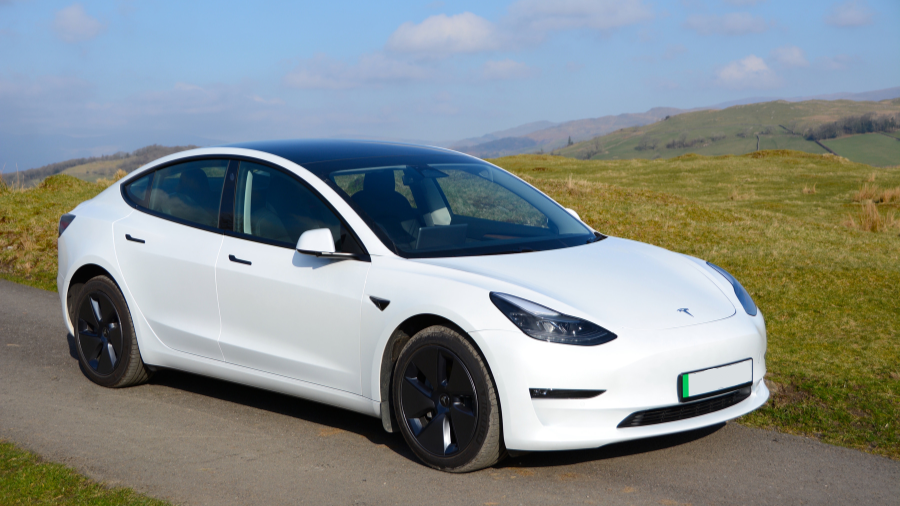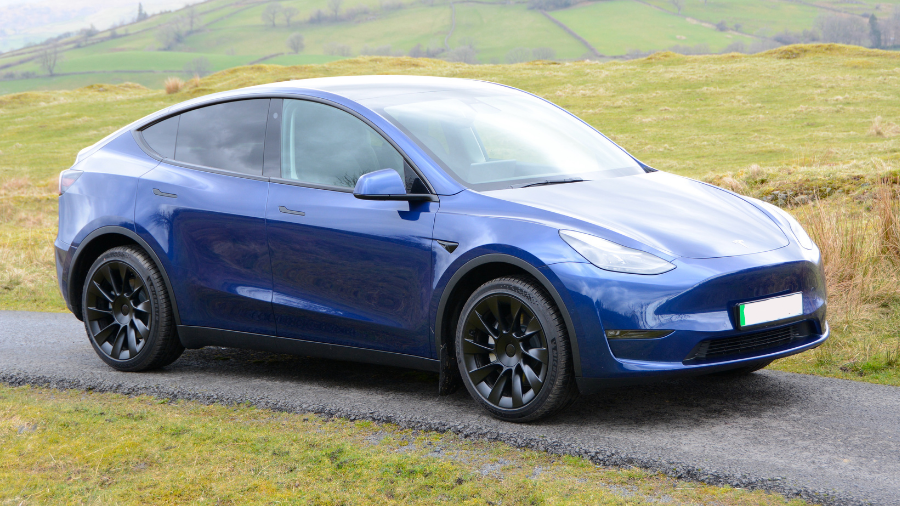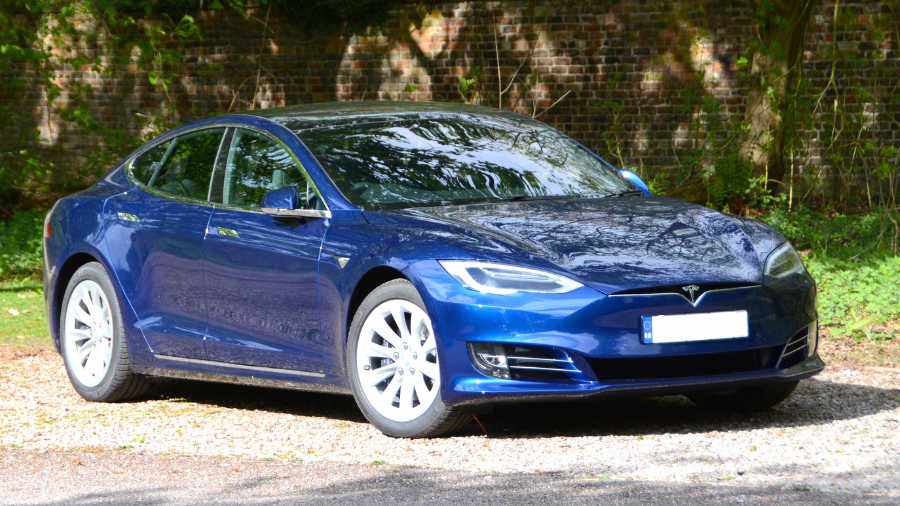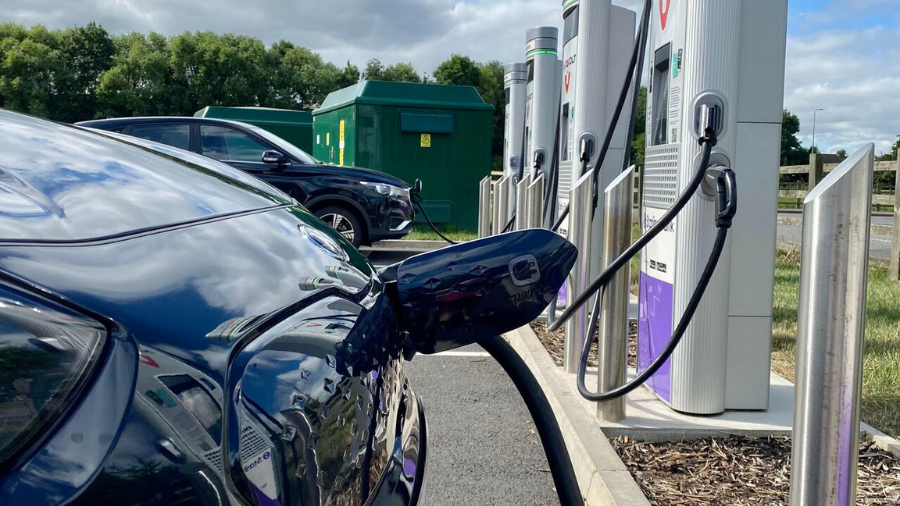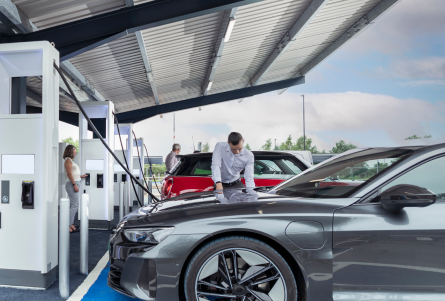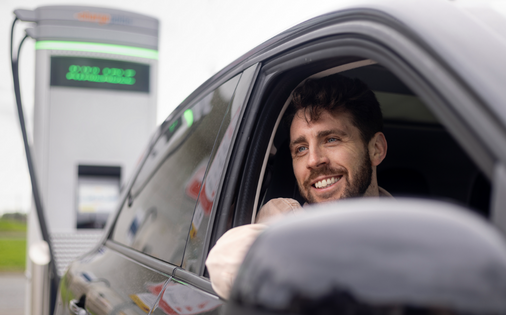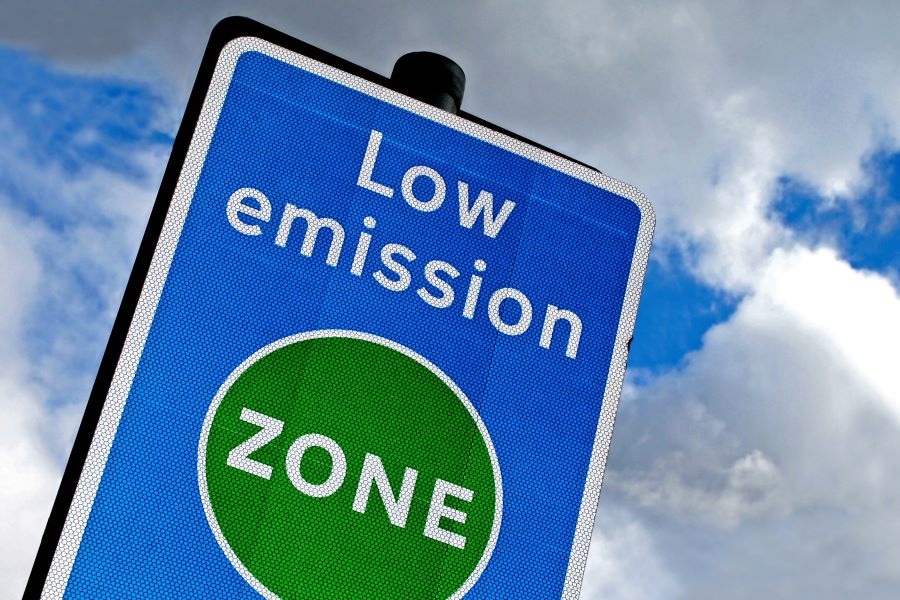The ultimate guide to a business electric car lease
What is a business electric car lease? Why lease a business electric car rather than purchase one? Is there a difference between a business lease and a personal lease? Why choose an electric car lease instead of hybrid, petrol, or diesel cars? Let us answer all your questions in our Ultimate Guide to Leasing an Electric Car for Business.

Are you ready to go electric?
Want to know if an electric car is the right choice for you?
Join in with our simple online quiz to find out more.
What is a business electric car lease?
A business electric car lease refers to an agreement between a business and a leasing provider. It allows the business to lease one or more electric vehicles for a certain amount of time, typically ranging from 2 to 4 years. If you are leasing an electric vehicle through your business, your company pays a monthly fee for the use of the car. The expense counts against your profit and loss account and is fully allowed against corporation tax.
To be eligible you need to be a credit worthy sole traders or partnership, limited company or VAT-registered company.
How does business electric car leasing work?
Business Contract Hire (BCH) is the quickest and easiest way for small businesses to switch to electric vehicles. If you pay yourself in dividends rather than a salary or run a small fleet of company cars, BCH is a great way to get a company EV and take advantage of low company car Benefit in Kind tax rates.
BCH works like a long-term rental agreement. You and your company choose an electric company car, and decide on an acceptable monthly fixed repayment fee, mileage allowance limit and whether you need maintenance support. The contract is signed for a set period of time – typically between 2 and 4 years. At no point does the company own the car, at the end of the contract, the car is simply handed back.
Why businesses should consider electric car leasing rather than buying?
- Lower Corporation Tax – lease any car with CO2 emissions of 50g/km or less and the full monthly rental payments are classed as deductible expenses. Meaning these costs can be off-set against company profits, leading to lower Corporation Tax.
- VAT savings – leasing companies can reclaim VAT on every vehicle they lease, passing the savings on to customers.
- Attractive balance sheet – lease a company car and the asset or liability will not be shown on the balance sheet.
- Residual value protection – by leasing instead of buying, companies are protected from the financial risk of the vehicle losing value.
- Financial certainty – leasing enables companies to plan budgets based on fixed monthly costs, with greater protection from unexpected maintenance costs.
- Protected cash flow – leasing allows companies to keep capital in their business to enable growth.
- Benefit in Kind – EV’s qualify for significantly lower BiK rates compared to higher emission diesels and petrol equivalents.
- Enjoy the latest EV technology – With the current evolving EV market, new technologies are developing constantly. Leasing allows you to experience the latest electric cars and EV technology with new battery life, range or style every few years.
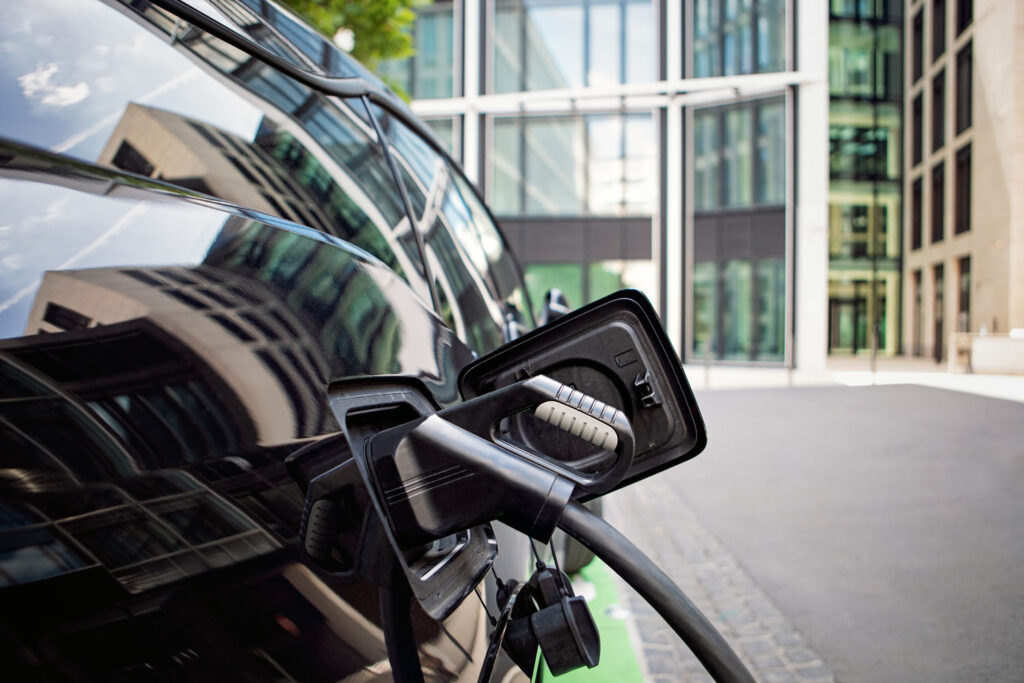
Why choose electric business leasing over personal leasing?
Most leasing companies offer a choice of both Business and Personal Leasing. Or as it’s more commonly called, Business Contract Hire (BCH) or Personal Contract hire (PCH). For BCH, you’re leasing the car or fleet on behalf of your company, while PCH is just for you. The annual mileage allowance is often higher on a business lease to account for regular motorway journeys.
Business electric car lease VAT
If you’ve ever compared the BCH and PCH price, you’ll know that there’s quite a difference. It all comes down to VAT. Business prices are often shown with the VAT already discounted, while the personal contract always includes VAT, which in August 2023 was 20%.
If your company is VAT registered, you can claim back 50% of the VAT on the monthly payments – plus 100% of VAT back on the maintenance agreement.
Can I use a leased business car for personal use?
Employees are free to use a company car for personal use, so long as they are not claiming that the car is solely for business use only. Employees who use a company car for personal use have to pay company car tax otherwise known as Benefit in Kind. BiK rates are for EV drivers are currently substantially lower than those for traditional fuels.
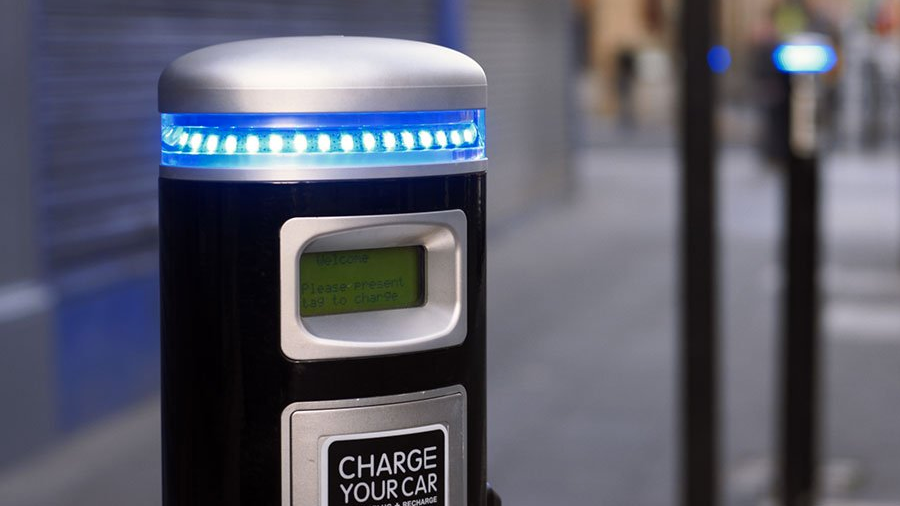
Why lease electric vs hybrid, petrol or diesel?
One of the most notable benefits of electric cars is the help they provide in reducing greenhouse gas emissions over their lifetime compared to fossil fuel powered vehicles, even when accounting for manufacturing.
However, switching to a business electric car, especially leasing a car, has various benefits that you might not be aware of.
Lower BiK rates for business electric car lease
Benefit in Kind (BiK) is a tax on employees who receive benefits or perks on top of their salary. If employees have the use of a company car for private use, they have to pay a BiK contribution, also known as company car tax.
Every car has a BiK rating based on CO2 emissions, and a P11D value – which is the list price, including extras and VAT, but doesn’t include the first-year registration fee and vehicle tax.
The current company car tax rate for electric cars is just 2% fixed until April 2025, compared to up to 37% for some diesel cars. The rate is set to increase, but by just 1% each year until it reaches 5% in April 2028 – still way below the rate of petrol and diesel cars.
Here are a couple of examples of the BiK rate differences between Petrol and Electric cars. As you can see EV business leasing could save you thousands.
| Electric car example: | Petrol car example: | |
| List Price | £40,000 | £40,000 |
| BiK Rate | 2% | 31% |
| 40% tax payer pays | £320 annually | £4,960 annually |
| 20% rate tax pays | £160 annually | £2,480 annually |
Lower Class 1A National Insurance contributions
There are two kinds of company car tax on electric company cars. As we’ve discussed, employees pay Benefit in Kind tax, while employers pay Class 1A National Insurance Contributions.
Switch your company cars to electric and you can save on NI contributions. That’s because companies pay National Insurance on an employee’s Benefit in Kind. Quite simply, the lower the employee’s BiK payments, the lower the company’s NI contribution.
Zero Vehicle Excise Duty for a business electric car lease
Until April 2025, owners of electric cars are exempt from Vehicle Excise Duty, commonly referred to as road tax. Drivers of petrol and diesel cars must pay an annual fee based on their CO2 emissions.
The new rules will see brand new electric cars registered on or after April 1st 2025 pay £10 in the first year, rising to £165 in subsequent years. Older EV models registered between 1 April 2017 and 31 March 2025 will pay the standard £165 fee. Low emission and zero emission cars first registered between 1st March 2001 and 30th March 2017 will move to £20 a year.
100% exempt from ULEZ and Congestion Zone charges
Electric cars emit zero exhaust emissions which means they are 100% exempt from ULEZ and Clean Air Zone charges. The daily charge for driving in London’s Ultra Low Emissions Zone as of August 2023 is £12.50. So, if you have lots of business in London, it’s easy to see how this cost could build to around £3,500 per year for daily use.
ULEZ isn’t the only road charging scheme in London. Drivers of electric and diesel cars that emit over 75g/km of CO2 face Congestion Zone fees of £15 a day – while electric cars are again exempt from all charges until December 2025.
Other cities around the UK have introduced their own chargeable Clean Air Zones including Aberdeen, Bath, Bristol, Bradford, Glasgow and Portsmouth. Similar schemes are also in consultation in Cambridge, St Albans, Warrington and Wokingham.
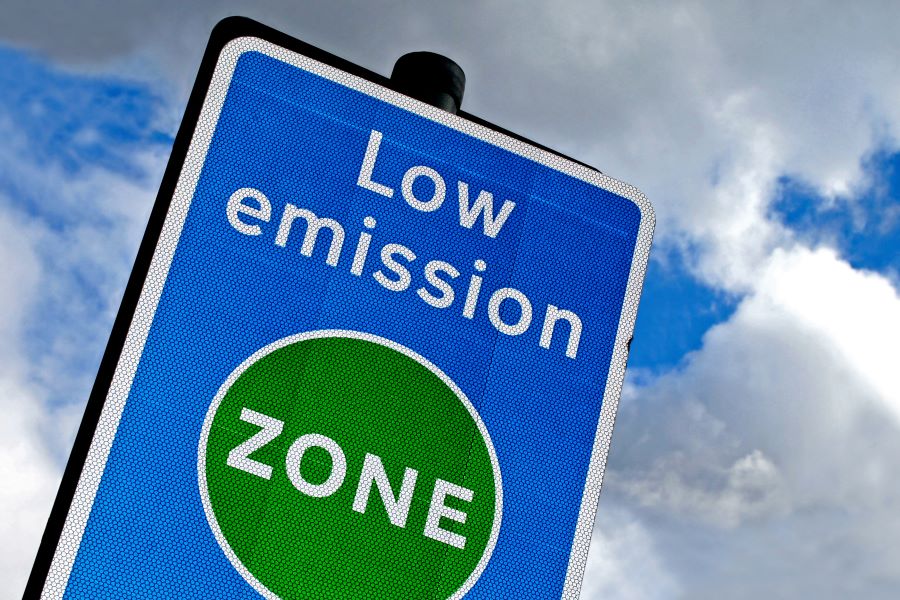
EV Maintenance
Electric cars have fewer moving parts that can become damaged or worn down, plus regenerative braking which places less strain on the brakes reducing the upkeep further.
EVs don’t require diesel particulate filters or additives such as AdBlue, both of which come at a cost. So much so, that Go Ultra Low – from the UK Government – once estimated that an electric car’s maintenance costs will be around 70% less than those of diesel or petrol cars over its lifetime.
ElectriX work with CBVC to offer a maintenance package in the monthly lease cost so, it’s less likely you’ll have to worry about having to lose time or money getting your car fixed.
The cost of charging an electric car versus filling up
According to Fleet News in March 2024, UK average petrol prices were 143.49p per litre while diesel was more expensive at 152.69p per litre. Resulting in pence per mile costs of around 19p for a large 2000cc vehicle.
In the same month the average home electricity costs were priced on average at 30p per kWh. Meaning a typical large-size electric car (such as a Tesla Model 3) would cost around 11.1 per mile. This cost would come down to just 5p per mile at off-peak times, read more about when electricity is cheaper.
The average rate for medium sized businesses during the same period was a comparable 29.8p per kWh. Business leasing customers who provide on-site charging at their premises may also benefit from tax deductions, and some local authorities may incentivise this further – saving electric company car drivers even more money.
Compare the average cost per mile for an EV
| Petrol | Diesel | Electric |
|---|---|---|
| 19p | 19p | 5p per mile (off-peak) |
When it comes to rapid public chargers, prices are generally more expensive at up to 25.7p per mile, but conversely, some also enable drivers to top-up for free. You can read more about charging an electric car at The Ultimate Guide To Electric Car Charging
Claiming mileage back with electric business leasing
AER stands for Advisory Electricity Rate and is set by government. It applies when a company reimburses an employee for business travel in a company car, or where an employee is required to repay the company for personal travel in a company car.
On September 1st 2023, the advisory rate for fully electric cars was 10 pence per mile. As the price of electricity fluctuates, so do the recommended rates. To keep up to date and check the value of previous rates, take a look at the Gov.co.uk website.
Of course, companies are not constrained by the advisory rate. Should they choose to, they can pay more than 10 pence per mile, by providing the required evidence to HMRC.
Key considerations for business electric car leasing
To make it easier for you when navigating the journey to electric, we recommend you consider three important factors before making the switch: range, charging and car maintenance.
Choosing the right company electric car
Different businesses will also require different types of electric cars based on the services they operate. Depending on how many miles you or your employees drive will likely dictate the EV range that most suits you. Cars with bigger batteries typically have higher range – many big battery cars can now travel over 350 miles on a single charge. You can read more about range here. It’s a general rule of thumb that the bigger the battery the bigger the car and the higher the cost or monthly lease cost.
Driving performance is often not as important in EV’s because even smaller electric cars tend to be quicker than many big mainstream petrol or diesel models – but for comfort on longer journeys you might choose a more spacious model. Most EV’s have advanced technology and supporting apps designed to help with journey planning, helping you locate the right charger in the right location during your business trip – you can compare features on the EV database.
The advantage of leasing an electric car for your business means you have the potential to try out brand new cars for at least 24 months and if new technology becomes available or your business needs change you can easily switch to a different model without any concerns over depreciation or time-consuming disposal. ElectriX can help you choose the right car by completing the online car quiz.
Electric car charging
Besides public charging stations, you will also need to think about other charging options for your business electric car. An effective and accessible charging infrastructure is essential for maximising the benefits of electric car mobility and ensuring seamless operations for your business fleet.
Businesses can implement smart charging solutions at the workplace to optimise charging schedules, minimize energy costs, and maximize charging efficiency. Or employees can consider a home charging solution. You can find up to date information on government grants for EV workplace charging in the UK here. For employees who would like a home charger installed, we partner with Indra to provide a seamless smart solution.
Maintenance package for leasing electric cars
Our EV leasing partner CBVC offers a business electric car lease package with maintenance covering routine servicing and repairs, leaving you free to focus on your other priorities without worrying about unexpected costs.
In summary, there are many financial and environmental benefits to both your business and your drivers if you choose electric car business leasing. Lower corporation tax, VAT savings and significantly lower BiK rates and running costs. Your business will become more sustainable and reduce the impact of business travel on the environment.
ElectriX can offer advice and support on all aspects of business leasing, visit our learn section or get a quote for a business electric car lease here.
Is an electric car
right for me?
Discover electric cars that are available through our partner CBVC today.
Discover cars available

